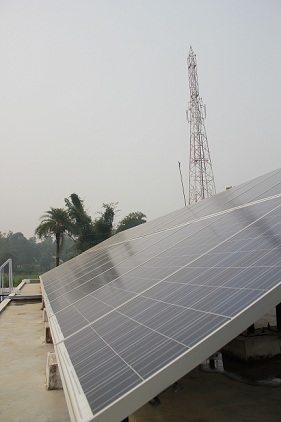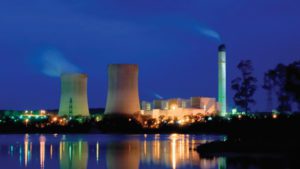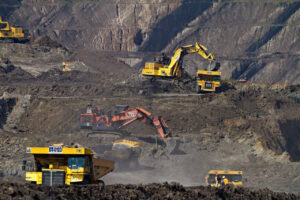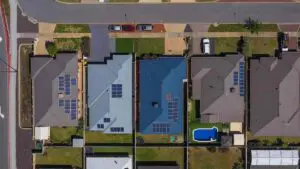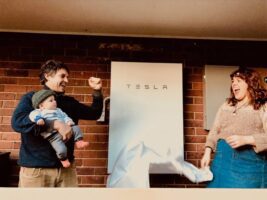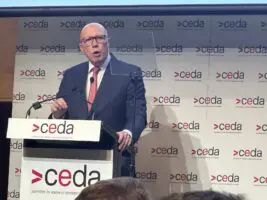If we are going to avoid the worst impacts of climate change we need disruptive innovations that fundamentally alter the broken systems that continue to build out inequitable, fossil fueled societies. Solar and other renewable energy technologies can do that to energy markets.
But it won’t happen without fixing another broken system – finance. Now it appears that the energy innovation axiom –small is big – also applies to financial innovation as solar crowdfunders prove that aggregating small investments from individuals can break down financial barriers to a clean energy revolution
Crowdfunding is a potentially disruptive financial innovation that unlocks and aggregates small amounts of capital to ensure what society deems socially and environmentally important receives the capital it requires. The disruptive potential of this ‘social bankability’ was on full display last Monday when Solar Mosaic officially opened its doors to investors in California and New. In just 24 hours three solar projects (built on affordable housing projects) totaling $313,000 were fully funded by average people contributing as little as $25. Including its beta testing Solar Mosaic has raised $1.1 million for distributed solar.
Seeing this happen in the USA is truly awesome given the painful obstruction to climate and clean energy solutions our politicians have put forward on a global stage. Combining crowdfunding with other financial innovations like opening Real Estate Investment Trusts (REIT’s) and Master Limited Partnerships (MLP’s) to renewable energy in the US (something on the table in the form of the Coons Bill) offers a unique opportunity to further tear down financial barriers. Doing so will help unlock US clean energy leadership and not a moment too soon.
But the real opportunity for crowdfunders lies with distributed solar in emerging markets where the world’s poor pay obscene amounts for dirty fuel based lighting. It’s the 1.3 billion people living in off grid communities for whom the economics of solar make the most sense and have the most impact.
That’s why the Sierra Club advocates for international financial institutions (IFIs) (like the World Bank) to fund distributed solar in emerging markets. But despite the high profile calls from entrepreneurs like Jigar Shah to capitalize on the opportunity, IFI’s have simply not stepped up to the challenge. In fact, getting them to pony up even relatively small amounts of public money to make solar bankable – like the $313,000 Solar Mosaic raised in one day – is like pulling teeth (except, of course, for the renewable energy champion OPIC).
That’s because providing funding in these relatively small amounts to ‘new’ technologies is just not what these guys do. They don’t because their business and operations model is suited to a different age, one which helped produce the problem of climate change and inequality but is ill equipped to solve it. That means that solving energy poverty and climate change is up to those capable of financing and deploying small scale distributed renewable energy – at least according to the radicals at the International Energy Agency.
So while Solar Mosaic’s first day is exciting, it’s their next steps that hold the truly disruptive potential. Solar Mosaic and other crowdfunders like SunFunderare already eagerly eyeing emerging markets like India where the coal sector is a mess, grid expansion isn’t happening and diesel prices are unbearably high. These conditions along with exciting new business model innovations likecommunity power offer a potent alternative to the status quo. But the only reason they will happen is that a new age of entrepreneurs and financiers have deemed them socially bankable.
Already India is home to Milaap, a domestic Indian crowdfunder funding solar lanterns in West Bengal with ONergy, and improved cookstoves in Orissa. AsUttar Pradesh and Bihar continue to incubate distributed solar revolutions the need for financing becomes more stark. While IFIs fund feasibility study after feasibility study watch for the crowdfunders to step in and catalyze the market.
It’s clear that in the United States at least, our current financial system is broken. Which is why rooting out entrenched financial power must happen alongside efforts to root out entrenched fossil fuels. Because climate change is not just about technology, it’s about systems that produce equitable outcomes for people and the environment. It’s clear our current financial and energy systems can’t, or won’t, do that. Let’s work to make sure the systems of the future, built on a foundation of social bankability by disruptive innovators like solar crowdfunders, do.
This article was originally posted on Sierra Club. Re-posted with permission.

